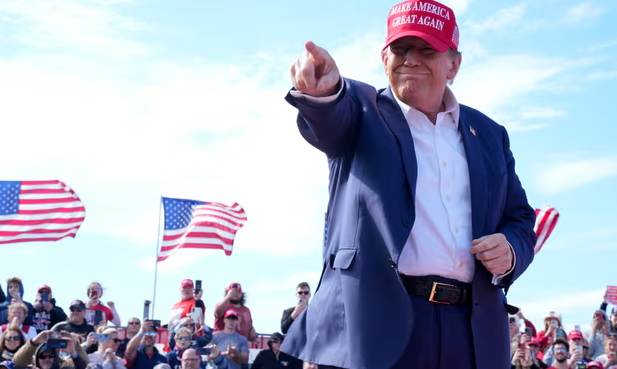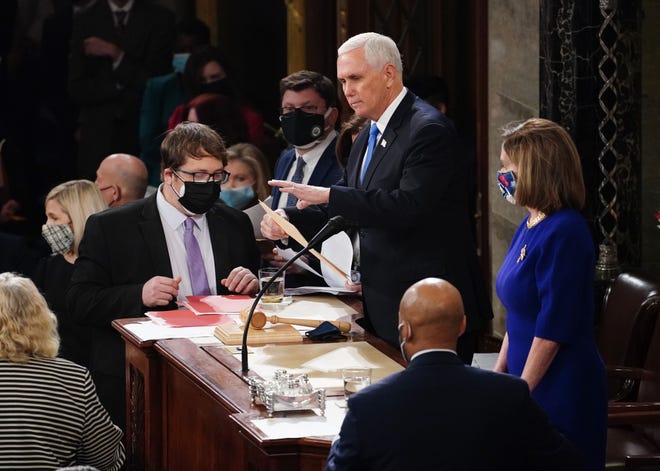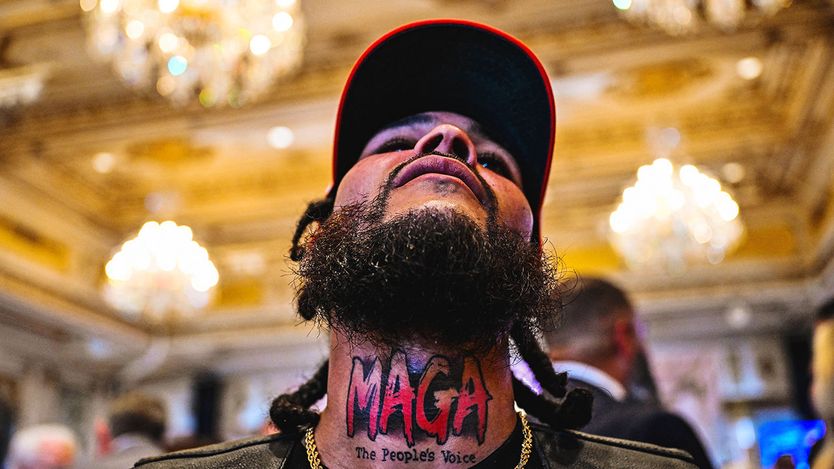This article is more than
1 year oldSupreme Court Leaves Arguments on Trump Immunity to Appeals Court

WASHINGTON—The Supreme Court said it wouldn’t intervene before an appeals court acts on Donald Trump’s claim that he is immune from prosecution over efforts he took as president to overturn the 2020 election.
Trump’s lawyers earlier this week asked the high court to deny a request from special counsel Jack Smith to fast-track a ruling on the matter. The Supreme Court’s one-sentence order on Friday increases the chances that the former president’s trial on charges that he interfered in the 2020 election will be delayed beyond its scheduled March 4 starting date.
The court’s move leaves the issue in the hands of the U.S. Court of Appeals for the District of Columbia Circuit, which has scheduled expedited proceedings. Trump’s appeals brief is due Saturday, and the government will have until Dec. 30 to file a response. Arguments before the D.C. Circuit are set for Jan. 9, and the losing party will likely appeal to the Supreme Court after the intermediate court rules.
“This development probably compromises the March trial date, but not by enough to push the trial past the summer,” said Lee Kovarsky, a University of Texas law professor, who expects the three-judge D.C. Circuit panel to rule quickly, given the immense public interest.
The immunity case is just one of many disputes involving Trump that are likely to dominate the justices’ 2024 docket. The former president is expected to appeal a Colorado Supreme Court decision barring him from the ballot for engaging in insurrection following his 2020 defeat, which the state justices based on constitutional provisions designed to keep ex-Confederates from taking power in the government they had tried to overthrow.
With Trump facing scores of criminal charges filed by Smith and state prosecutors in Georgia and New York—as well as civil actions involving Trump personally and his business operations—a spectrum of additional cases could reach the justices in the months ahead.
Trump’s lawyers argued in the election-interference case that his activities and statements in the months after his loss to President Biden in November 2020 lay “within the ‘outer perimeter’ of his official responsibility” as president. After U.S. District Judge Tanya Chutkan rejected that argument, Trump’s lawyers appealed to the U.S. Court of Appeals for the District of Columbia Circuit.
In an unusual motion, special counsel Jack Smith asked the Supreme Court to take the case on an expedited basis ahead of the lower appeals court, saying that waiting for the D.C. Circuit threatened to knock the trial off its March 4 start date.
“Given the weighty and consequential character of the constitutional questions at stake, only this Court can provide the definitive and final resolution,” Smith wrote.
Trump’s lawyers pushed back, arguing in a Dec. 20 response that the Supreme Court has no grounds to cut off the appeals court and that Smith’s call for rapid judgment is disingenuous.
The special counsel, the former president’s lawyers wrote, “confuses the ‘public interest’ with the manifest partisan interest in ensuring that President Trump will be subjected to a monthslong criminal trial at the height of a presidential campaign.”
The Supreme Court earlier this month agreed to expedite its decision on whether to take the case. As is customary, it didn’t lay out its reasoning for opting not to do so.
Chutkan has frozen pretrial proceedings in Trump’s case until the appeal has been decided.
Write to Jess Bravin at Jess.Bravin@wsj.com and Jan Wolfe at jan.wolfe@wsj.com
Keywords
Newer articles
<p>Porn star Stormy Daniels has gone to town on Donald Trump in court saying “nobody would ever want to to publicly” admit they had sex with the former president.</p>
Justin Bieber announces huge personal news
Kendrick Lamar Beat Drake By Being Drake
How Kendrick Lamar and Drake changed rap beefs forever Rapid-fire releases and fast pace of modern life elevate diss war to levels unparalleled in hip-hop history.
Miss Teen USA resigns days after Miss USA departure
UN assembly urges Palestine membership after vote
Sean 'Diddy' Combs asks judge to reject lawsuit alleging rape of 17-year-old girl in 2003
Justin Bieber and wife Hailey drop major announcement after crying photos cause concern
Taylor Swift concert photo horrifies internet
Ukraine finds itself in a grave situation. Russia appears to be advancing




